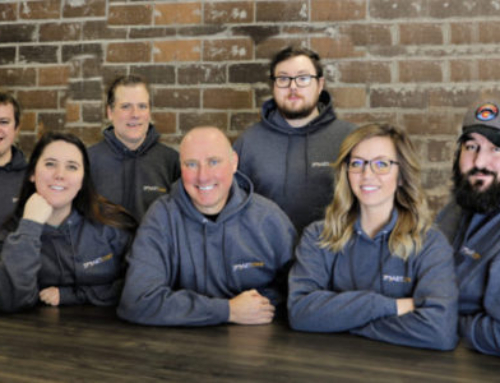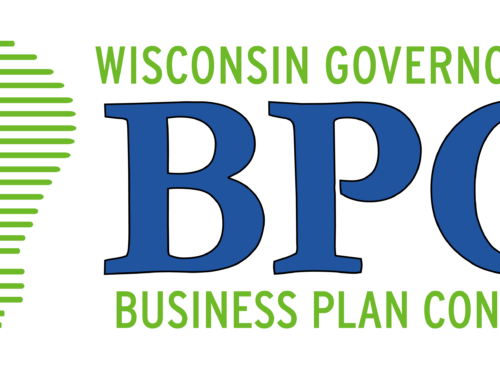Biotechnology is booming in Wisconsin. This success is evidenced by the state’s world renowned research institutions and increasing number of cutting edge commercial entities. Recently we learned how the Madison division of Aldevron, a biotech company based in Fargo, is partnering with UW-Madison to improve the company’s manufacturing processes and efficiency. Tom Foti, vice president and general manager of Aldevron, provided a glimpse into the company’s partnership with UW-Madison, and key findings that could benefit the broader biotech community in Madison.
Read more about this scalable company, its manufacturing processes, and targeted growth areas for the company in the interview with Tom below. Also, don’t forget to visit Aldevron’s website to learn more about its biotech innovation.
Q: What types of products does Aldevron produce?
Aldevron is a contract services company that develops and produces plasmid DNA, recombinant proteins and antibodies specific to client requirements.
Q: When was Aldevron founded and what’s the history of the company?
In 1998, John Ballantyne and Michael Chambers started Aldevron in a small lab at North Dakota State University. Aldevron initially specialized in plasmid DNA production for gene-therapy and DNA vaccine research and quickly grew into a well-known and respected service organization. With the purchase of Genovac (Freiburg, Germany) in 2004, Aldevron gained the ability to make antibodies directly from plasmid DNA; a novel approach that often succeeds where conventional methods fail. Growth accelerated in August 2009, when Aldevron established a site in Madison, specializing in the use of recombinant DNA to develop and produce proteins with commercial or therapeutic value. To date, the Madison site has completed over 400 projects making more than 1,000 recombinant proteins for clients. In 2012, the Aldevron Storage and Distribution Service (ASDS) program was launched for the secure storage and management of critical DNA, cell bank, protein and antibody materials used in drug discovery research and clinical trial programs.
Q: Explain your partnership with UW-Madison, and how it’s helping other biotech companies.
Dr. Ananth Krishnamurthy met with Aldevron in December of 2012 to discuss the application of Quick Response Manufacturing (QRM) to the commercial production of biological materials – an operation that involves variable and at times unpredictable processes. Since the first meeting, Aldevron has worked with Dr. Krishnamurthy and his doctoral student Tugce Martagan, to study the application and benefit of QRM in a production operation. Initially findings were presented to and well received by related companies in the Madison area at working group sessions in September 2013 and February 2014. The study continues at Aldevron with the objective of improving operational performance and client satisfaction using QRM to reduce the negative impacts of highly variable and unpredictable processes on commercial laboratory operations.
Q: How are you making changes to your company’s manufacturing strategy?
Aldevron places high priority on client satisfaction and, therefore, is always looking for ways to ensure outcomes that are both satisfying to the client and profitable to the company. As we learn more about the application and benefits of QRM in the production of biological materials (Bio-QRM), we will apply the method to better deal with uneven resource demands and unpredictable production processes that put at risk our ability to deliver satisfying and profitable results. We are working with UW-Madison to develop Bio-QRM software specific to our industry and look forward to putting this to work at Aldevron.
Q: Why is it valuable for Aldevron to have a lean operation?
Client satisfaction and profit; on-time delivery, higher and more consistent quality and lower production costs make this happen. Small companies like ours need consistent, predictable performance to make critical investments with confidence when needed, while maximizing our ability to satisfy our clients’ needs.
Q: Why do you think your business model will be successful in the marketplace?
The marketplace for drug discovery services is changing quickly. Pharma is eliminating departments that internally provided core services like protein production and looking outside to contract partners such as Aldevron to fill the need created by downsizing. Aldevron’s business model is to be a supply chain partner to our clients, offering four, linked platforms: DNA, proteins, antibodies and biological storage services. We believe Aldevron can be successful with this model as our integrated manufacturing and storage services address a range of unmet market needs.
Q: How does biological manufacturing differ from other manufacturing industries?
Living cell cultures provide the raw materials for production and these systems can produce variable and unpredictable results that impact cost, turn-around-time and quality.
Q: Who are your key customers and where do you see growth opportunities?
Aldevron’s key clients are mostly top 20 pharma and biotech companies. In 2013, Aldevron experienced growth in a number of areas. One specific area of growth is in the development and production of large molecule drug targets. These targets are typically recombinant proteins or well-characterized antibodies.
Learn more about Aldevron’s offerings:











FOLLOW US